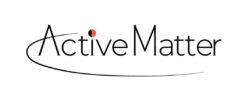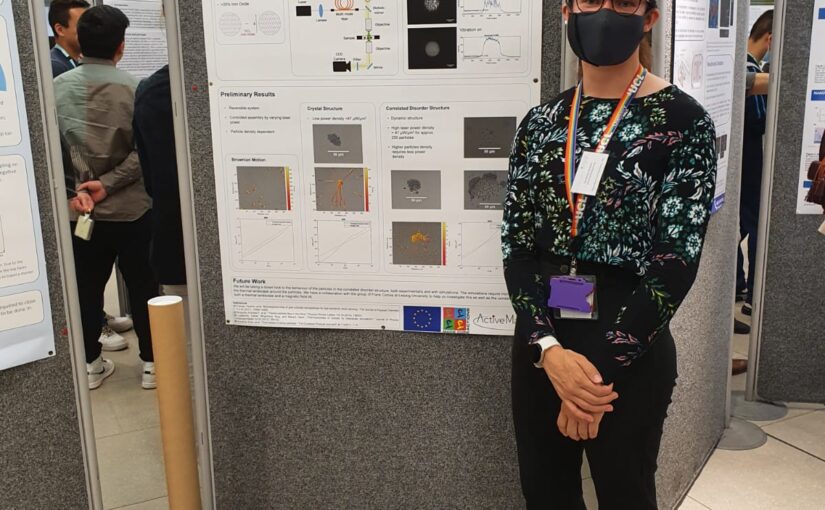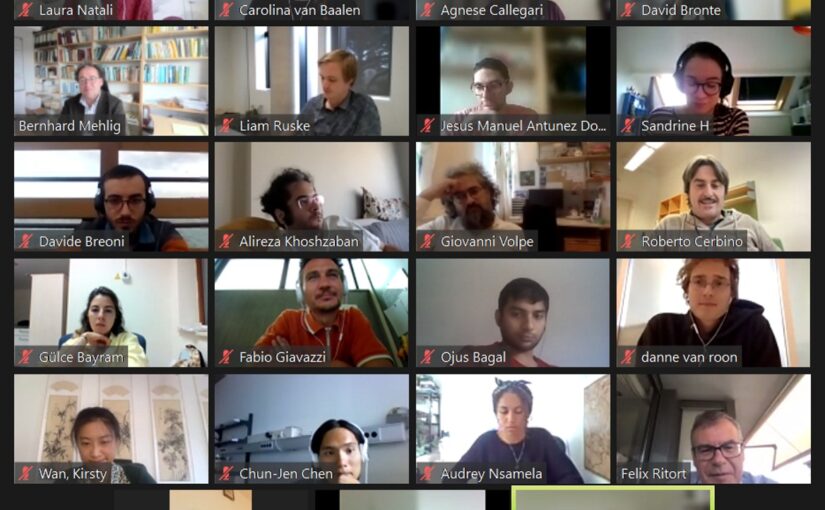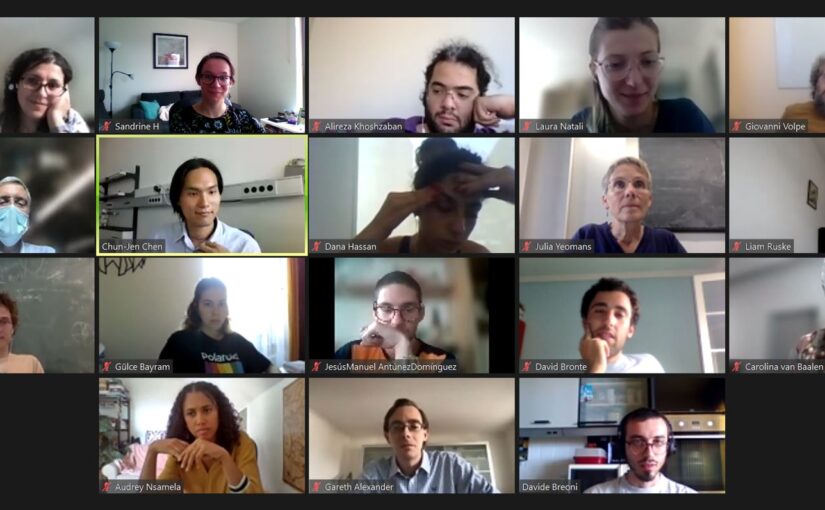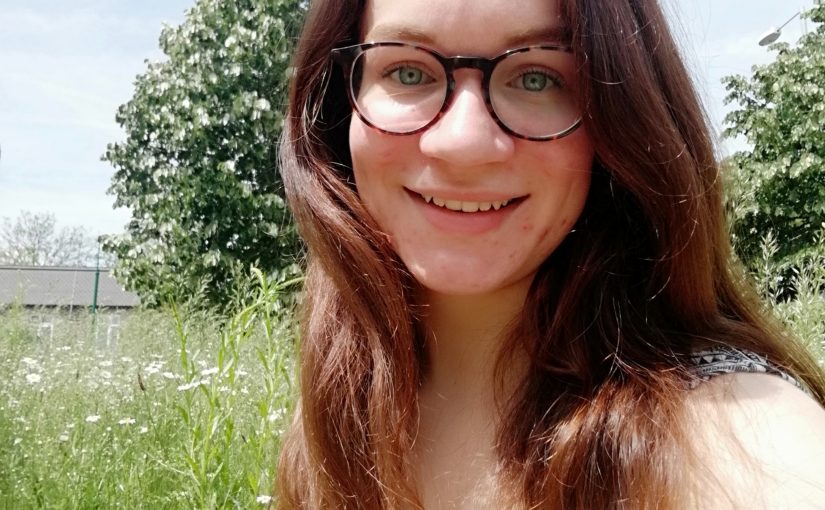Sandrine Heijnen attended the Active Assemblies Symposium in Leipzig, Germany on the 21-23th of September 2022. She presented a poster titled “Emergent Collective Behaviours for Active Particles in Optical Landscapes” showing the recent development in her project regarding the behaviour of superparamagnetic particles in a light illuminated field. The symposium was host to a lot of interesting talks ranging from new experimental systems to how to solve computational tasks.
Author: Sandrine Heijnen
Sandrine Heijnen presented a poster at the 5th Meeting of the UCL Cross-Disciplinary Network on Soft Materials, 20th June 2022.
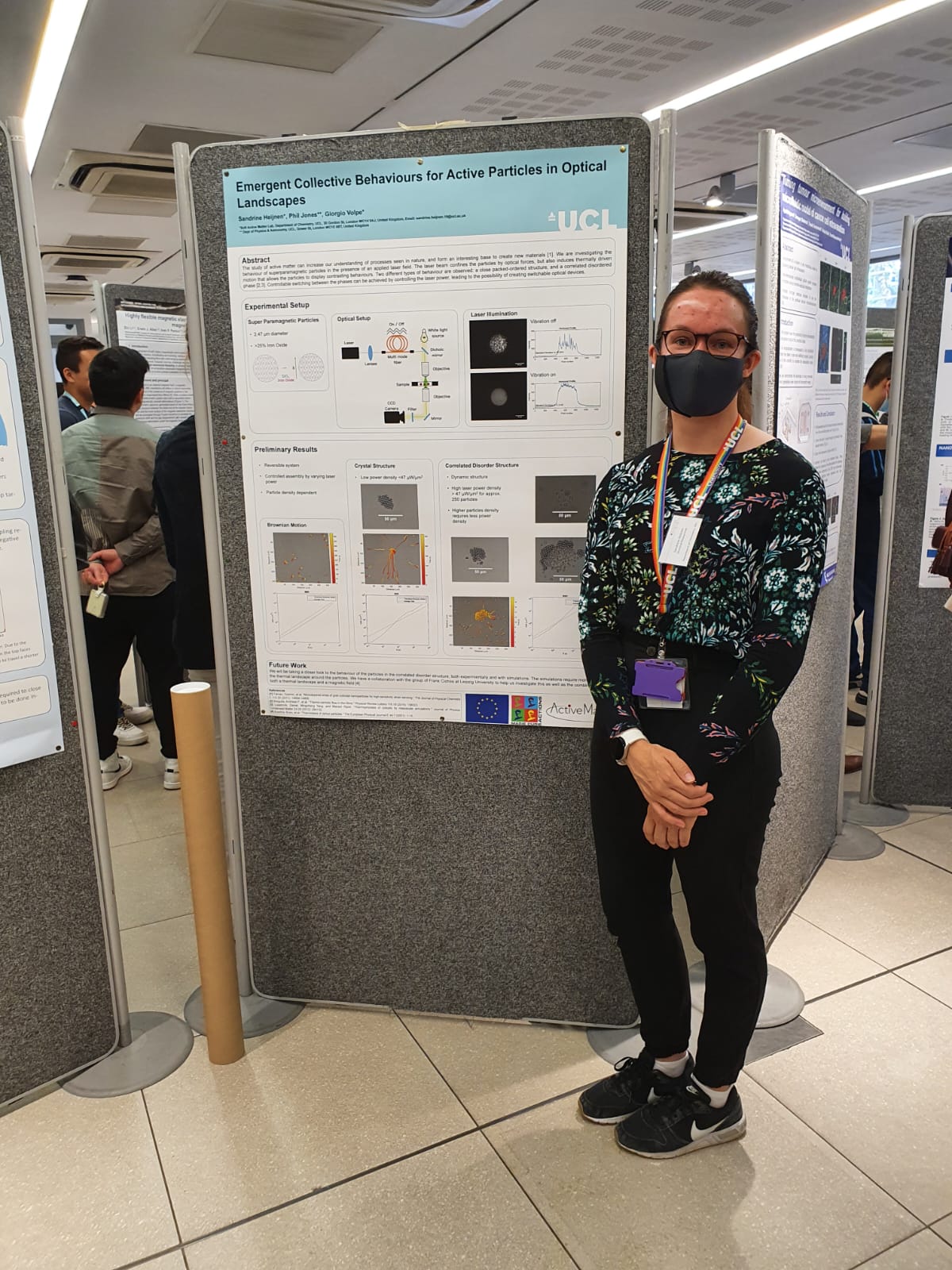
Round Table on the Universality of Active Matter: from Biology to Man-made Models
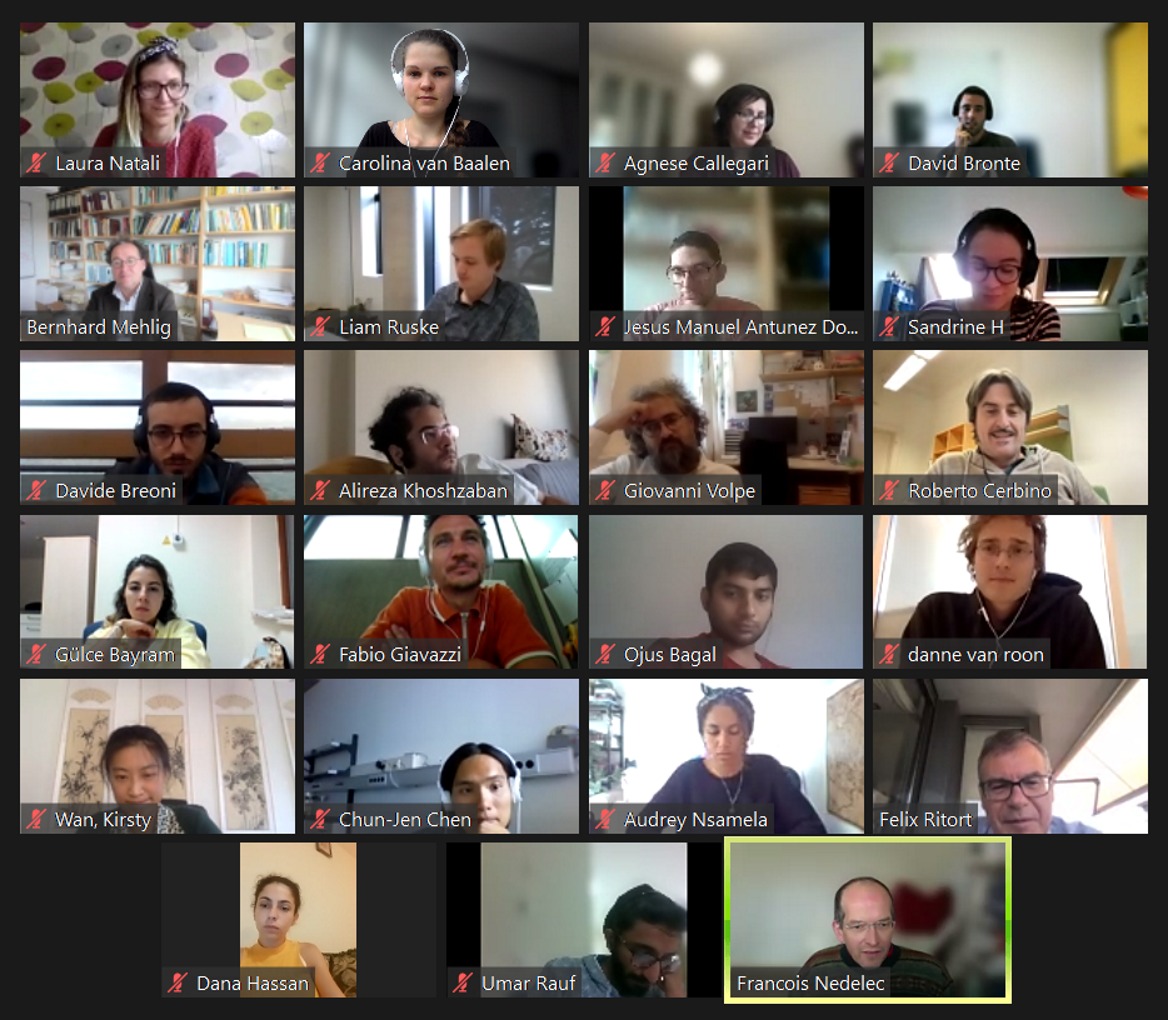
On the 20th of September, the last round table of the Initial Training on Theoretical Methods took place. The discussion was let by the ESRs David, Sandrine, Liam, Carolina, Danne, and Laura. We were excited by the presence of an inspiring panel composed of Felix Ritort, Roberto Cerbino, Kirsty Wan, Fabio Giavazzi, Bernhard Mehlig, and François Nédélec.
The quote “If a system is in equilibrium, it’s probably death” ignited a lively and dynamic discussion around the topic of this final round table: “The universality of active matter: From biology to man-made models.”
Several topics were discussed ranging from active matter length scales and entropy production, to the equipartition theorem and universality. The session left us pondering about the definition of active matter: From single cells to the galaxy, where does the definition of active matter end? Our panelists conclude that it all depend on the question we ask ourselves. The round table was closed with a highlight of the most interesting avenues and opportunities in active matter, including the merge information and activity, realization of in vivo systems, as well as the manipulation of soft matter systems. Some inspiring words from one of the panelists let us realize: “We are the future of active matter.”
Round Table Discussion on Fluids and Active Matter

In our third round table we had the pleasure of Gareth Alexander, Ignacio Pagonabarraga and Julia Yeomans as our guest panellists. This time the overall theme was “Fluids and Active Matter” and hosted by Chun-Jen Chen, Davide Breoni, Danne van Roon, Audrey Nsamela, Dana Hassan and Sandrine Heijnen.
It started out with an interesting discussion regarding the motivation to get in and what amazes them the most in the field of active matter. Here it became clear that active systems can have their passive counterparts, and works for easy transitions from active to passive systems, but at the same time, such active systems still have the potential to answer many fundamental questions. From this topic, one of the key takeaways was that the project that you are currently working on should be the subject that amazes you the most.
The next topic that stood as the centre of the discussion was turbulence. Turbulence is an interesting phenomenon where a lot of things are still unknown. The intriguing concept here was that real, or fluid-dynamical, turbulence is different from active turbulence. As a clarification, Julia Yeomans introduced the following comparison. Real turbulence is observed in a waterfall where the energy follows the Kolmogorov cascade. In active turbulence, the energy originates from the individual particles moving and does not follow the same energy trend as real turbulence.
As one of the final topics, we were wondering what are the main takeaways regarding active nematics, especially if it’s not your field. We got it set for you in four points. One, it is fundamentally unstable and therefore creates flows. Point number two, motile topological effects. Number three, the potential connection it has to biological systems and the ability to explain similar processes. Finally, number four, the fact that we are looking at non-equilibrium systems.
Sandrine Heijnen presents her PhD project at the ActiveMatter online meeting, 10 September 2020
During the first official ActiveMatter meeting, on the 10th of September, all Early Stage Researchers got a chance to present their project. During this meeting Sandrine Heijnen, ERS at University College London, introduced herself and her project in a short presentation. Sandrine’s presentation as well as all of the other ESR’s are now published on our Youtube channel.
